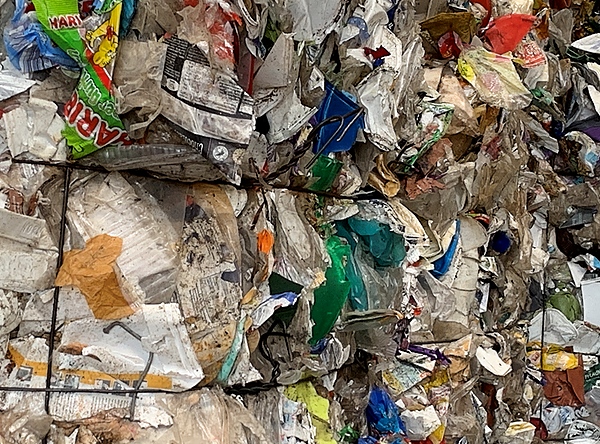PLASTIC PACKAGING
Germany unveils new reclaim standard / NC-based printing inks dubbed non-recyclable / Further changes postponed
In agreement with Germany’s federal environmental authority Umweltbundesamt (Berlin; www.umweltbundesamt.de), the country’s central packaging oversight organisation, the Zentrale Stelle Verpackungsregister (ZSVR, Osnabrück; www.verpackungsregister.org), has published a new minimum standard for the assessment of packaging recyclability.
 The yearly update to the minimum standards reflect the recyclability of and reclaim capacity for packaging (Photo: PIE) |
Compared to the previous version, the current minimum standard revealed on 1 September features a number of additional developments. For example, nitrocellulose (NC)-based inks are now classified as non-recyclable in interlayer printing. According to the explanatory statement, NC impairs the mechanical recycling process due to its limited temperature resistance and lowers the quality of recyclates. Another new regulation concerns glass as a packaging material.
Possible further changes – including those concerning certain types of flexible packaging and films – have been “postponed, but not cancelled”, according to a ZSVR statement.
Related: German Federal Council approves special levy for single-use plastics
The country’s regulation stipulates that packaging may only be classified as recyclable if a functioning reclaim infrastructure is in place. Every year, as part of a study by the German environment agency, the total sorting and recycling capacity is determined for the different types of packaging.
If it is established that there is enough capacity for more than 80% of the material stream, it is assumed that an adequate recycling infrastructure is available. If the sorting and recycling capacities cover less than 20% of the stream flow, companies currently have to provide individual proof of recycling. Since 2019, it has also been possible to require this kind of individual proof in the case of limited recycling capacities between 20% and 80%.
Developments continue
During the consultation process this year, some discussions focused on abolishing the wide range between 20% and 80% for which there is no real regulation. By postponing a decision on the matter, the ZSVR is now responding to objections that more consideration should be given to the necessary lead times for distributors. In addition, it would be necessary to define uniform measurement and testing procedures for determining whether there is sufficient recycling capacity for a specific packaging.
“The path of focusing more on recycling capacities is the right one and will be pursued further,” a ZSVR statement said. It also mentioned that the topic is already a high priority in the draft of the planned European Packaging Regulation PPWR.
The ZSVR maintains a packaging register of all legally obligated companies from industry and trade, matches quantities from manufacturers and systems, and ensures more recycling-friendly design in packaging through standards. Gunda Rachut, a lawyer, chairs the foundation
“The path of focusing more on recycling capacities is the right one and will be pursued further,” a ZSVR statement said. It also mentioned that the topic is already a high priority in the draft of the planned European Packaging Regulation PPWR.
The ZSVR maintains a packaging register of all legally obligated companies from industry and trade, matches quantities from manufacturers and systems, and ensures more recycling-friendly design in packaging through standards. Gunda Rachut, a lawyer, chairs the foundation
15.09.2023 Plasteurope.com [253534-0]
Published on 15.09.2023

 German version of this article...
German version of this article...